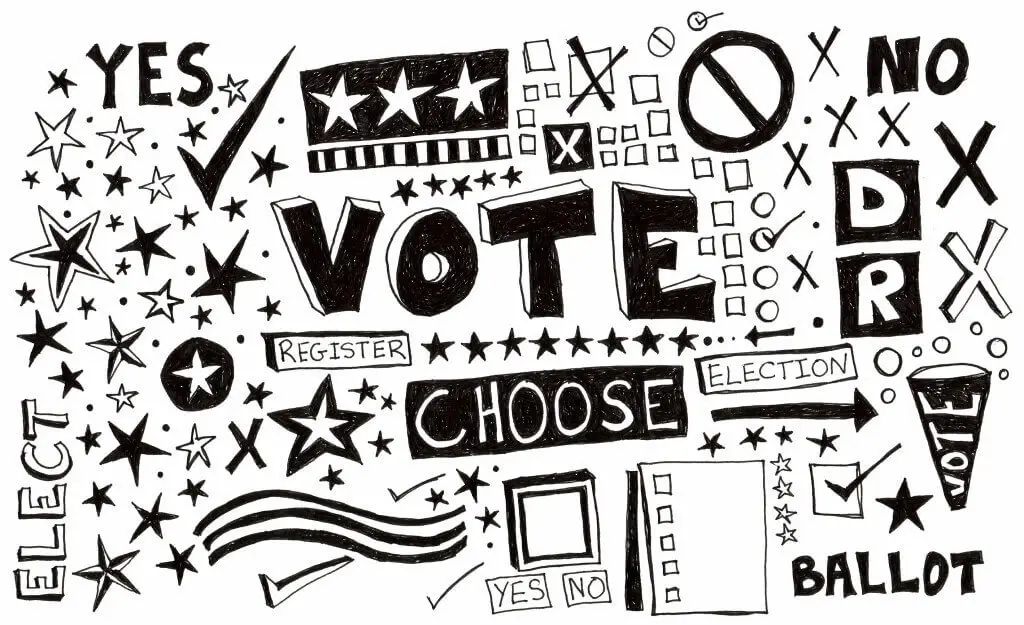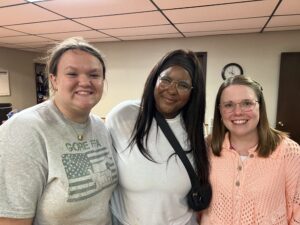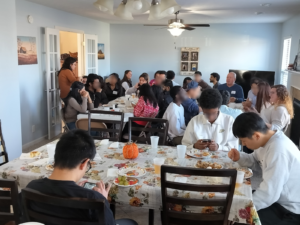It was senior superlative time at my high school. We had borrowed the county’s voting machines for our oh-so-important elections and were preparing for the influx of students to come through the gym. As we were setting up the machines, a volunteering mother mentioned that she never had used one before. As she put it, “I’m not political.” I’ll never forget how those words rang in my ears. My 18th birthday and voting eligibility were just weeks away. Standing at the bulky contraption, I pondered my own “political” future.
MILLENNIALS ON THE MOVE
Many of you are contemplating the same questions I did as you consider voting for the first time this fall. Campus political organizations and an onslaught of TV ads have made you well aware that we’re in the full throws of the election season. Yet, many students express doubt over the effectiveness or importance of voting. Others, especially Christian young adults, may be turned off by the worldly ways of our current political culture.
Romans 13 is a hallmark passage on the intersection of Christianity and government. Paul called for a spirit of cooperation in Romans 13:7: “Pay your obligations to everyone: taxes to those you owe taxes, tolls to those you owe tolls, respect to those you owe respect, and honor to those you owe honor.” Furthermore, Jesus encouraged cultural engagement in His call for us to be “salt” and “light” in Matthew 5:13. An instrumental way to be a part of our culture is through political involvement.
Today’s college students are part of the Millennial generation, one of the most politically active generations in decades. In the 2008 presidential election, between 22 and 24 million Americans ages 18-29 voted, according to CIRCLE, a nonpartisan research center at Tufts University. That marked the second highest youth turnout in history.
Thom and Jess Rainer reported in their book, The Millennials, nine out of ten Millennials believe it is their responsibility to make a difference in the world. The Rainers also reported eight out of ten Millennials want a “stronger government role in our lives.”
MAKE YOUR VOTE COUNT
In order to vote on Election Day, you must register (unless you live in North Dakota). There are a number of websites created to help young adults register to vote, including rockthevote.com. Each state has different requirements, and many of those requirements change often. A few states allow Election Day registration, but most don’t. Be sure you’re up-to-date on the current policies, as many of the recent changes can have a direct effect on college students.
Once you’re registered, the question becomes, Who are you going to vote for? Voting is your chance to elect a person who best represents the values and positions you uphold. What are your positions on the issues of our day: the economy, the environment, life, immigration, marriage, war? The large number of subjects in the political conversation can be overwhelming.
There are many compelling arguments from a variety of positions, and they’ll be filling your TV screen, computers, and campuses. However, we have a resource greater than any think-tank. The Bible has much to say about the issues addressed in today’s legislation. It’s the responsibility of every believer to know what the Bible says (and doesn’t say) about these subjects. Don’t take the word of a politician or political party. There’s no “Christian” party. Our authority is the whole of Scripture, and the Holy Spirit stands ready to guide believers as we seek to apply it.
Once we’ve established biblical principles, it’s time to research. Read newspaper stories, watch television, and visit political websites. Be forewarned, however, that most sources have some sort of bias. Many sources will be up-front about it, and others will claim to be objective. The information you find may seem contradicting at times.
The best solution is to consider the source and seek to learn from a variety of outlets to help counter subjectivity. Be sure to read both opinion and news articles and know the difference between them. Talking with someone who’s knowledgeable and trustworthy about their political positions–possibly a parent, professor, or pastor–can be extremely helpful.
Each party will release a party platform at their respective conventions outlining their take on the issues. Following the conventions, erlc.com will provide an informational guide comparing the two platforms. Of course, each candidate has a website where they explain their positions on the issues as well. Project Vote Smart, found at votesmart.org, is another resource for information on candidates.
No matter the outcome on Election Day, we must remember what Jesus said to Pilate in John 19:11, “You would have no authority over Me at all…if it hadn’t been given you from above.” Jesus is reminding us here that God is sovereign over all.
That day in the gym I didn’t know much more than I had learned in my U.S. History class, but I knew my right to vote had come at a price that I didn’t pay. Have you felt the weight of your vote rest upon your shoulders? If not, I hope you do soon, maybe today. Get registered, get educated, and vote!
Jill Waggoner spent five years working with the Ethics & Religious Liberty Commission of the Southern Baptist Convention. Today, she spends her days as a mom, pastor’s wife, and freelance writer, as well as planning her son Judson’s 2048 presidential campaign.






